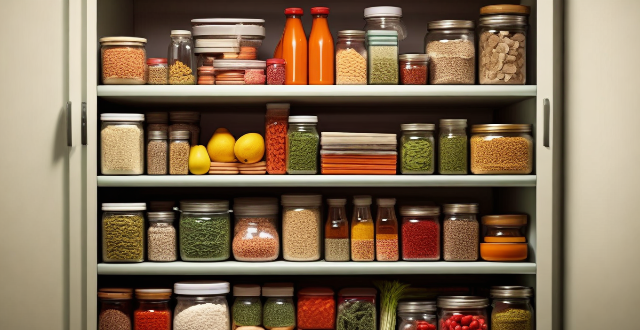Temperature control is crucial in food storage and preparation to ensure safety, quality, and longevity of food products. It prevents bacterial growth, avoids toxin production, maintains flavor and texture, preserves nutrients, extends shelf life, reduces waste, saves energy, and reduces environmental impact. Proper temperature control helps to enjoy delicious and healthy meals while minimizing the risk of foodborne illnesses and food waste.

Why is Temperature Control Important in Food Storage and Preparation?
Temperature control is a crucial aspect of food storage and preparation for several reasons. It helps to ensure the safety, quality, and longevity of the food products. Here are some key points explaining why temperature control is important:
Safety
- Preventing Bacterial Growth: Most bacteria thrive in a specific temperature range, known as the "danger zone," which is between 40°F and 140°F (4°C and 60°C). By maintaining proper temperature control during storage and preparation, you can prevent the growth of harmful bacteria that can cause foodborne illnesses.
- Avoiding Toxin Production: Some bacteria produce toxins that can survive even after the bacteria have been killed by heat. Proper temperature control can help prevent the production of these toxins.
Quality
- Maintaining Flavor and Texture: Improper temperature control can lead to changes in the flavor, texture, and overall quality of the food. For example, freezing certain foods can cause ice crystals to form, which can damage the cell structure and result in a mushy texture when thawed.
- Preserving Nutrients: Exposure to high temperatures can cause nutrient loss in some foods. Proper temperature control helps to preserve the nutritional content of the food.
Longevity
- Extending Shelf Life: Proper temperature control can help extend the shelf life of perishable foods by slowing down the rate of spoilage caused by bacteria, mold, and other microorganisms.
- Reducing Waste: By maintaining proper temperature control, you can reduce food waste due to spoilage or quality deterioration.
Energy Efficiency
- Saving Energy: Proper temperature control in refrigerators and freezers ensures that they operate efficiently, reducing energy consumption and lowering utility bills.
- Reducing Environmental Impact: By using energy-efficient appliances and maintaining proper temperature control, you can reduce your carbon footprint and contribute to a more sustainable environment.
In conclusion, temperature control is essential in food storage and preparation to ensure the safety, quality, and longevity of food products. It also helps to save energy and reduce environmental impact. By following proper temperature guidelines, you can enjoy delicious and healthy meals while minimizing the risk of foodborne illnesses and food waste.